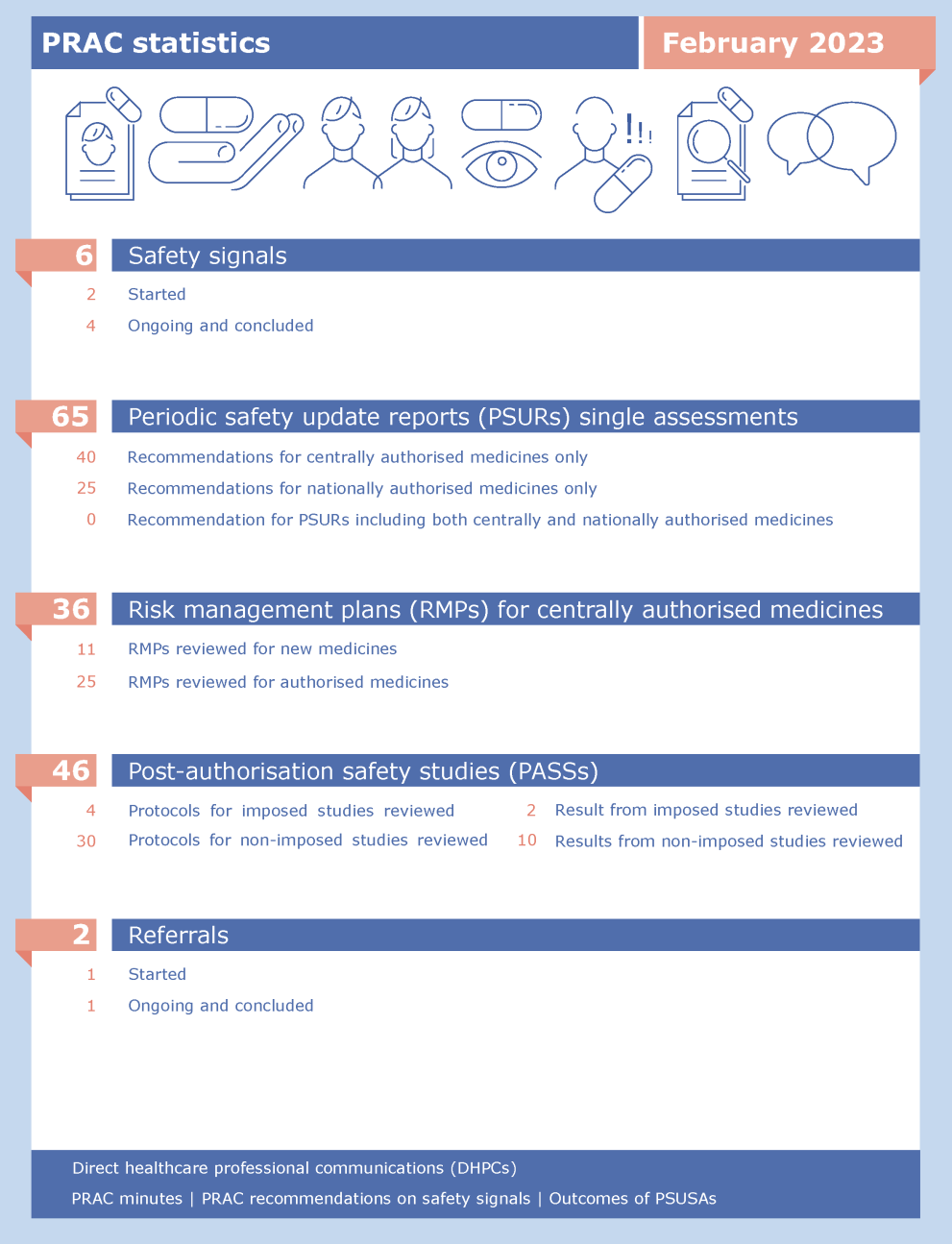EMA’s safety committee (PRAC) has started a review of medicines containing pseudoephedrine following concerns about the risk of posterior reversible encephalopathy syndrome (PRES) and reversible cerebral vasoconstriction syndrome (RCVS), conditions affecting blood vessels in the brain. Pseudoephedrine is taken by mouth and is used alone or in combination with other medicines to treat nasal congestion (a blocked nose) resulting from a cold, flu or allergy.
PRES and RCVS can involve reduced blood supply (ischaemia) to the brain and may cause major and life-threatening complications in some cases. Common symptoms associated with PRES and RCVS include headache, nausea and seizures.
The review follows new data from a small number of cases of PRES and RCVS in people using pseudoephedrine-containing medicines which were reported in pharmacovigilance databases and the medical literature.
Pseudoephedrine-containing medicines have a known risk of cardiovascular and cerebrovascular ischaemic events (side effects involving ischaemia in the heart and brain), including stroke and heart attack. Restrictions and warnings are already included in the medicines’ product information to reduce these risks.
Considering the seriousness of PRES and RCVS, the overall safety profile of pseudoephedrine and the indications for which the medicines are approved, the PRAC will review available evidence and decide whether the marketing authorisations for pseudoephedrine-containing medicines should be maintained, varied, suspended or withdrawn across the European Union (EU).
Pseudoephedrine-containing medicines are authorised in various EU Member States alone, or in combination with medicines to treat symptoms of a cold and flu such as headache, fever and pain, or allergic rhinitis (inflammation of the nasal passages) in people with nasal congestion.
More information is available in EMA’s public health communication.
Agenda
PRAC statistics: February 2023

Glossary:
- Safety signal assessments. A safety signal is information which suggests a new potentially causal association, or a new aspect of a known association between a medicine and an adverse event that warrants further investigation. Safety signals are generated from several sources such as spontaneous reports, clinical studies and the scientific literature. More information can be found under 'Signal management'.
- Periodic safety update reports, abbreviated as PSURs, are reports prepared by the marketing authorisation holder to describe the worldwide safety experience with a medicine in a defined period after its authorisation. PSURs for medicinal products that contain the same active substance or the same combination of active substances but have different marketing authorisations and are authorised in different EU Member States, are jointly assessed in a single assessment procedure. More information can be found under 'Periodic safety update reports: questions and answers'.
- Risk management plans, abbreviated as RMPs, are detailed descriptions of the activities and interventions designed to identify, characterise, prevent or minimise risks relating to medicines. Companies are required to submit an RMP to EMA when applying for a marketing authorisation. RMPs are continually updated throughout the lifetime of the medicine as new information becomes available. More information is available under 'Risk-management plans'.
- Post-authorisation safety studies, abbreviated as PASSs, are studies carried out after a medicine has been authorised to obtain further information on its safety, or to measure the effectiveness of risk-management measures. The PRAC assesses the protocols (aspects related to the organisation of a study) and the results of PASSs. More information can be found under 'Post-authorisation safety studies'.
- Referrals are procedures used to resolve issues such as concerns over the safety or benefit-risk balance of a medicine or a class of medicines. In a referral related to safety of medicines, the PRAC is requested by a Member State or the European Commission to conduct a scientific assessment of a particular medicine or class of medicines on behalf of the EU. More information can be found under referral procedures.
- Summary safety reports have been introduced as part of the enhanced safety monitoring of COVID-19 vaccines. Marketing authorisation holders are required to submit these reports to EMA, starting on a monthly basis. Their submission complements the submission of PSURs. For more information see Pharmacovigilance plan of the EU Regulatory Network for COVID-19 vaccines.
Ongoing referrals
Procedure | Status | Update |
|---|---|---|
| Topiramate – Article-31 referral | Under evaluation | PRAC continued its assessment |